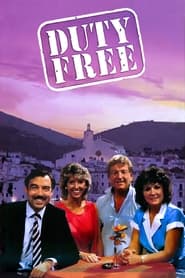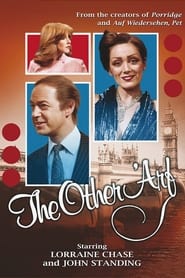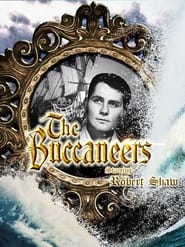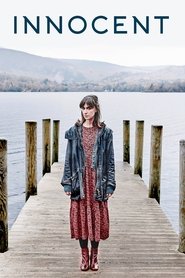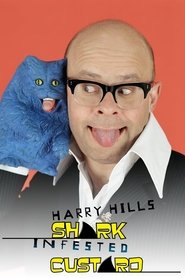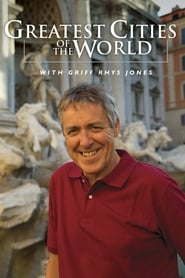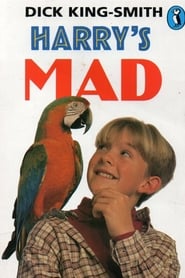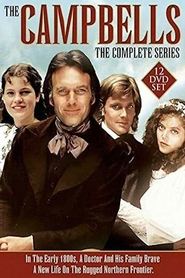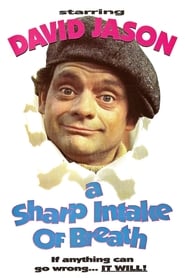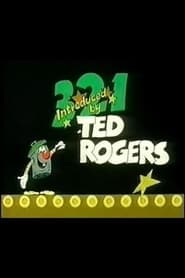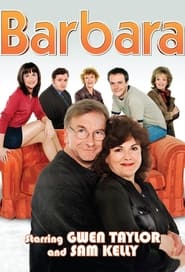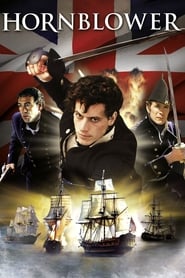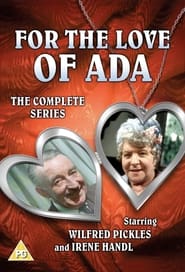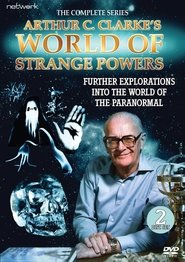Itv1 TV Series - Page 22
-
Duty Free
1984
star 7.4Duty Free is a British sitcom written by Eric Chappell and Jean Warr that aired on ITV from 1984 to 1986. It was made by Yorkshire Television. -
The Other 'Arf
1980
The Other 'Arf
1980
The Other 'Arf is a British television ITV sitcom series broadcast from 1980 to 1984. It stars John Standing as upper class Conservative politician Charles Latimer, MP, who begins a relationship with working class cockney Lorraine Watts. The series was produced by ATV, and was screened by ITV. -
The Buccaneers
1956
star 5.5The adventures of privateer Captain Dan Tempest and his crew of former pirates as they make their way across the seven seas in The Sultana. -
Innocent
2018
star 7After seven years in prison, David Collins is acquitted of the murder of his wife. Now, he must fight to rebuild his shattered life while police search for the real murderer. -
The Cube
2009
star 7British version of the game show in which teams of two put their skill, nerve, agility, and ability to the ultimate test in hopes of defeating The Cube and taking home the prize. -
Ant And Dec's Saturday Night Takeaway: Extra Helping
2021
A mini spin off show from Saturday Night Takeaway with exclusive and backstage footage. -
Harry Hill's Shark Infested Custard
2005
A children's television series that was broadcast in the United Kingdom between October 21, 2005, and January 13, 2006. The show marked stand-up comedian Harry Hill's first move into children's television. As of 2012, the show is still regularly being repeated on Cartoon Network, with up to three broadcasts a day, despite only thirteen episodes ever being made. The show was not only the starting point for Harry Hill's children television career but also the start of Actor Lewis Bittle's entire career. After his small part on the opening titles for the show's weekly punchline title sequence, his acting name shot up faster than a NASA rocket. -
Harry's Mad
1993
Harry's Mad
1993
Harry's Mad was a children's television programme that was shown in the United Kingdom of Great Britain and Northern Ireland on CITV from 4 January 1993 to 11 March 1996. It is based upon a book written by Dick King-Smith. -
The Campbells
1986
star 5The Campbells was a Scottish-Canadian television drama series, which aired on Scottish Television and CTV from 1986 to 1990. A historical family drama, the series starred Malcolm Stoddard as James Campbell, a Scottish doctor living in 1830s Upper Canada with his three children, Neil, Emma and John. -
We Have Ways Of Making You Laugh
1968
We Have Ways of Making You Laugh is a comedic television series produced by Humphrey Barclay and directed by Bill Turner for London Weekend Television. -
A Sharp Intake of Breath
1977
star 6.7British sitcom in which happy-go-lucky character Peter Barnes comically and haphazardly tries to deal with the daily frustrations his life throws at him. -
Pop Idol
2001
star 1Pop Idol is a British television music competition which ran on ITV from 2001 to 2003. The aim of the show was to decide the best new young pop singer in the UK based on viewer voting and participation. Two series were broadcast - one in 2001-2002 and a second in 2003. Pop Idol was subsequently put on an indefinite hiatus after "Idol" judge Simon Cowell announced the launch of the The X Factor in the UK in April 2004. The show has become an international TV franchise since, spawning multiples of Idol series worldwide. In the mean time a legal dispute arose with the makers of Popstars, which eventually led to the word "Pop" being excluded from the titles of all the spin-offs, such as American Idol, Australian Idol, Indonesian Idol, New Zealand Idol, Latin American Idol and Idols. -
3-2-1
1978
3-2-1
1978
3–2–1 was a popular British game show that was made by Yorkshire Television for ITV. It ran for ten years, between 29 July 1978 and 24 December 1988, with former Butlins Redcoat Ted Rogers as the host. It was based on a Spanish gameshow called Un, dos, tres... responda otra vez and was three shows in one, a quiz show, a variety show and a game show. The show was a huge success consistently pulling in large ratings. The first series, though, intended as a summer filler, attracted up to 16.5 million viewers and subsequent years never failed to peak below 12 million. The show occupied a Saturday early evening slot for most of its run. The final Christmas special attracted 12.5 million viewers, so, it is to this day unclear why an eleventh series was not commissioned in 1989. Ted Rogers claimed in a 1996 interview that "The Oxbridge lot got control of TV and they didn't really want it. It was too downmarket for them. We were still getting 12 million viewers when they took it off after ten years. These day -
Good Friends
1995
Good Friends
1995
My Good Friend was a British television sitcom that ran on ITV between 1995 and 1996. It starred George Cole and Richard Pearson as widowed pensioner Peter Banks and retired librarian Harry King. The show ran for two series, each of seven episodes. -
Barbara
1999
star 6Barbara is a British sitcom starring Gwen Taylor in the title role. A pilot was broadcast in 1995, and three series were then televised from 1999 to 2003. It was made by Central Television, and filmed at their Lenton Lane studios in Nottingham in front of a live studio audience. The majority of location scenes for the series were filmed in various suburbs of Nottingham, including Mapperley and West Bridgford, with other scenes filmed around Nottinghamshire and Derbyshire. Despite winning awards and respectable viewing figures, it was axed by ITV in 2003. -
Hornblower
1998
star 7.6Set during the 18th century Napoleonic Wars, Horatio Hornblower, a young and shy midshipman, rises through the ranks to become an admiral. -
For the Love of Ada
1970
star 7.3For the Love of Ada is an ITV sitcom that ran between 1970 - 1971. Irene Handl and Wilfred Pickles are senior citizens who find that as romance blossoms, so does emotional turmoil. The series gently charts the relationship between Yorkshireman Walter Bingley and Londoner Ada Cresswell, septuagenarians who meet while Ada is visiting her late husband's grave. -
Arthur C. Clarke's World of Strange Powers
1985
star 7.3Arthur C. Clarke's World of Strange Powers is a popular thirteen-part British television series looking at strange worlds of the paranormal. It was produced by Yorkshire Television for the ITV network and first broadcast in 1985. It was the sequel to the 1980 series Arthur C. Clarke's Mysterious World. The series is introduced by science fiction writer Arthur C. Clarke in short sequences filmed at his home in Sri Lanka. Individual episodes are narrated by Anna Ford. The series was produced by John Fairley and directed by Peter Jones, Michael Weigall and Charles Flynn. It was followed by Arthur C. Clarke's Mysterious Universe, broadcast in 1994.
